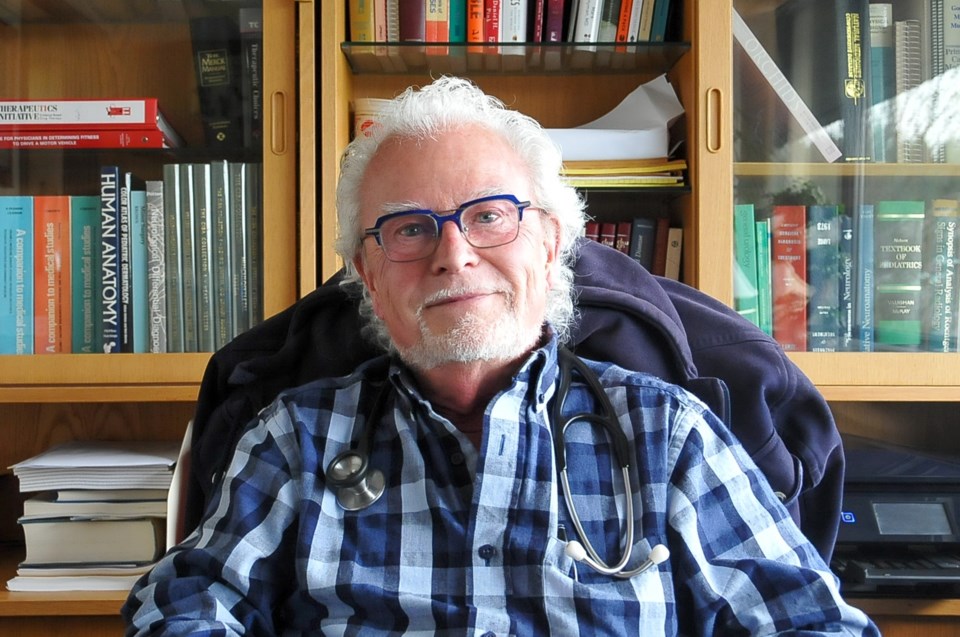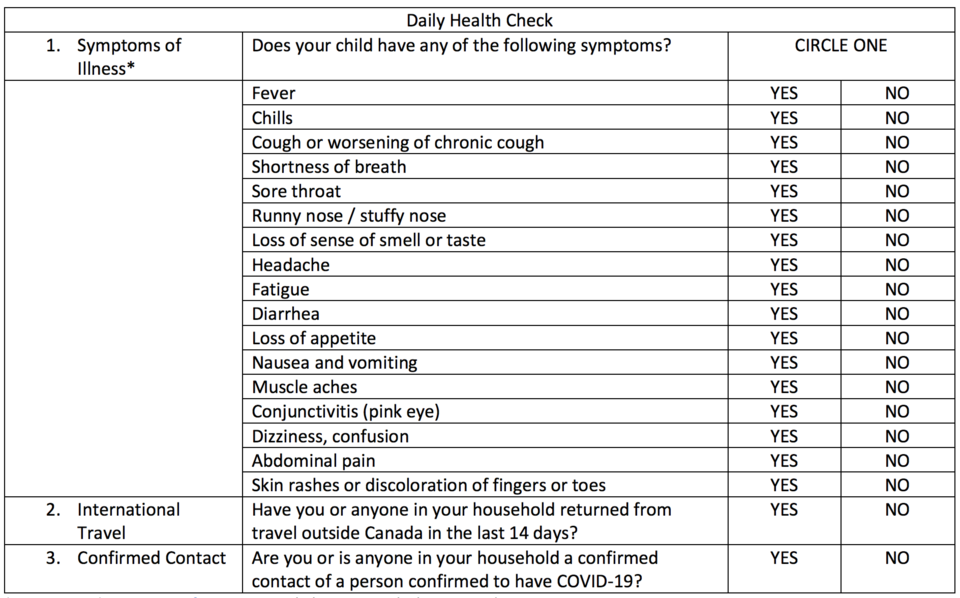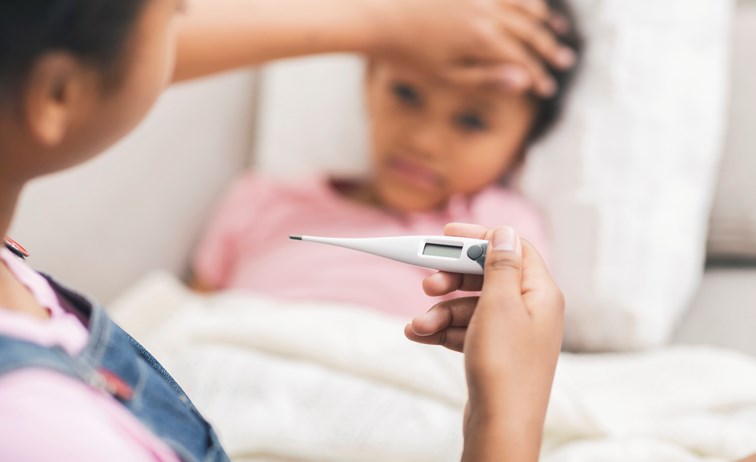With less than a week before school, parents across British Columbia are busy adjusting their work schedules, sorting out daycare and trying to understand just when, how or even if their children will be attending school this fall.
For those who have chosen to send their kids back to school, mornings are soon about to get a little more complicated. Beyond the regular morning rituals, both health officials and school districts have made it clear that daily health checks must be performed every day before you drop your kid off.
But what does a “health check” entail and how can a parent knock it off the list each morning without succumbing to the time-suck of a pre-pubescent teen hogging the bathroom?
The Tri-City News caught up with longtime Port Coquitlam family physician Dr. Ian Woods to help guide you through the process.

LOOK FOR THE UNUSUAL
There’s no doubt this is a stressful time for many parents. But keeping an eye out for any unusual breaks from a child’s routine is a good first step in staying ahead of a sickness.
“Number one, is the kid complaining about anything. Are they not eating breakfast? Are they not hungry?” said Dr. Woods.
Go down the list of symptoms, suggests the doctor.
Is your throat sore?
Is my kid coughing?
Is their appetite changing?
Are they complaining about chest pains?
Do they have gastrointestinal problems
Do they have a fever?
“Kids spike a fever easily,” said Dr. Woods. “If they get sick it bangs their temps up faster and higher than adults.”
While some polls suggest roughly 40% of U.S. households don’t have a working thermometer, now is not the time to be caught without one, said Dr. Woods.
The one-push-of-the-button infrared thermometers which scan for a fever in a non-invasive way is a great option if you can afford it, but the under-the-tongue variety will do. Just don’t be left without one.
“It’s an easy thing checking their fever in the morning and then checking them again at night,” said Dr. Woods.
Parents and caregivers need to check their children for COVID-19 symptoms every day before sending their children to school.
— BCCDC (@CDCofBC) September 4, 2020
Check out the updated FAQs for teachers, families and school staff: https://t.co/pOhxlnfW7z pic.twitter.com/4q9Rdl33eq
Body temperatures also naturally go up and down throughout the day as part of a diurnal rhythm, and are also often higher at night. By doing a health check twice a day, you can establish a more accurate healthy baseline temperature and also catch any symptoms should an infection present itself quickly.
“The most common symptoms are respiratory. So if you have a kid who’s suddenly waking up with a cough, runny nose, or fever that’s a first round of, ‘Oh my gosh, does my kid have COVID?’ said Dr. Woods.
Other less common symptoms to look out for, and which may present themselves in older children and adults, can include loss of smell or taste.
Here’s a checklist for your fridge:

All good? Now it’s time to mask up, and according to Dr. Woods, encourage your child to keep it on whenever possible.
“If my kid is sort of healthy, I’m pleading with them to keep your mask on and stay away from other kids,” he said. “But the chances of that are very slim.”
The family physician said many of his patients, teachers and parents from across the Tri-Cities, are very concerned, especially those with a grandfather or grandmother closely tied to the family.
“Both parents work. The grandparent takes care of them,” he said. “They say, ‘I just can’t take that risk with my parents at home.’”
School District 43, like many across the province, has made alternative arrangements for those with a high-risk family member who are looking to avoid the in-class school experience altogether.
Whatever choice you make for your family, the British Columbia Centre for Disease Control recommends teaching older children the common symptoms so they can let parents and caregivers or school staff know if they’re feeling ill.
If symptoms do present themselves, stay home and do not send your child to school. Call 8-1-1 or contact a primary care provider like a physician or nurse practitioner.
If you are returning from international travel or if you or someone in your household has had confirmed contact with a person who has COVID-19, use the COVID-19 Self-Assessment Tool to determine if you should be tested for COVID-19.



